Insulin: A Primer
Insulin is a hormone that regulates the levels of sugar in your blood. When you eat a meal, the carbohydrate in the meal is broken down into glucose (a sugar used as energy by your cells). The glucose enters your blood. Your pancreas senses the rising glucose and releases insulin. Insulin allows the glucose to enter your liver, muscle, and fat cells. Once your blood glucose starts to come back down, insulin levels come back down too. This cycle happens throughout the day. You eat a meal, glucose goes up, insulin goes up, glucose goes down, and insulin goes down. Insulin levels are typically lowest in the early morning since it's usually been at least 8 hours after your last meal.
Insulin doesn't just regulate blood sugar. It has other effects as well. For example, it stimulates your muscles to build new protein (a process called protein synthesis). It also inhibits lipolysis (the breakdown of fat) and stimulates lipogenesis (the creation of fat).
It is the latter effect by which insulin has gotten its bad reputation. Because carbohydrate stimulates your body to release insulin, it has caused some people to argue that a diet high in carbohydrate will cause you to gain fat. Their reasoning, in a nutshell, goes like this:
High Carbohydrate Diet -> High Insulin -> Increased Lipogenesis/Decreased Lipolysis -> Increased Body Fat -> Obesity
Using this same logic, they argue that a low carbohydrate diet is best for fat loss, because insulin levels are kept low. Their logic chain goes something like this:
Low Carbohydrate Diet -> Low Insulin -> Decreased Lipogenesis/Increased Lipolysis -> Decreased Body Fat
However, this logic is based on many myths. Let's look at many of the myths surrounding insulin.
MYTH:A High Carbohydrate Diet Leads to Chronically High Insulin Levels
FACT:Insulin Is Only Elevated During the Time After a Meal In Healthy Individuals
One misconception regarding a high carbohydrate intake is that it will lead to chronically high insulin levels, meaning you will gain fat because lipogenesis will constantly exceed lipolysis (remember that fat gain can only occur if the rate of lipogenesis exceeds the rate of lipolysis). However, in healthy people, insulin only goes up in response to meals. This means that lipogenesis will only exceed lipolysis during the hours after a meal (known as the postprandial period). During times when you are fasting (such as extended times between meals, or when you are asleep), lipolysis will exceed lipogenesis (meaning you are burning fat). Over a 24-hour period, it will all balance out (assuming your are not consuming more calories than you are expending), meaning you do not gain weight. Here's a graph showing how this works:
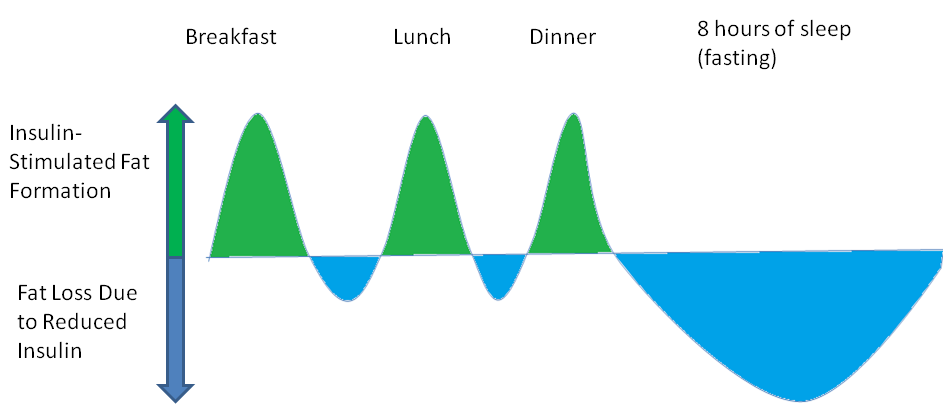
After meals, fat is deposited with the help of insulin. However, between meals and during sleep, fat is lost. Fat balance will be zero over a 24-hour period if energy intake matches energy expenditure.
This is just a rough chart that I made, but the green area represents the lipogenesis occuring in response to a meal. The blue area represents lipolysis occuring in response to fasting between meals and during sleep. Over a 24-hour period, these will be balanced assuming you are not consuming more calories than you expend. This is true even if carbohydrate intake is high. In fact, there are populations that consume high carbohydrate diets and do not have high obesity rates, such as the traditional diet of the Okinawans. Also, if energy intake is lower than energy expenditure, a high carbohydrate diet will result in weight loss just as any other diet.
MYTH: Carbohydrate Drives Insulin, Which Drives Fat Storage
FACT: Your Body Can Synthesize and Store Fat Even When Insulin Is Low
One of the biggest misconceptions regarding insulin is that it's needed for fat storage. It isn't. Your body has ways to store and retain fat even when insulin is low. For example, there is an enzyme in your fat cells called hormone-sensitive lipase (HSL). HSL helps break down fat. Insulin suppresses the activity of HSL, and thus suppresses the breakdown of fat. This has caused people to point fingers at carbohydrate for causing fat gain.
However, fat will also suppress HSL even when insulin levels are low. This means you will be unable to lose fat even when carbohydrate intake is low, if you are overeating on calories. If you ate no carbohydrate but 5,000 calories of fat, you would still be unable to lose fat even though insulin would not be elevated. This would be because the high fat intake would suppress HSL. This also means that, if you're on a low carbohydrate diet, you still need to eat less calories than you expend to lose weight.
Now, some people might say, "Just try and consume 5000 calories of olive oil and see how far you get." Well, 5000 calories of olive oil isn't very palatable so of course I won't get very far. I wouldn't get very far consuming 5,000 calories of pure table sugar either.
MYTH: Insulin Makes You Hungry
FACT: Insulin Suppresses Appetite
It is a well known fact that insulin acutely suppresses appetite. This has been demonstrated in dozens and dozens of experiments. This will be important when we talk about the next misconception...
MYTH: Carbohydrate Is Singularly Responsible for Driving Insulin
FACT: Protein Is a Potent Stimulator of Insulin Too
This is probably the biggest misconception that is out there. Carbohydrates get a bad rap because of their effect on insulin, but protein stimulates insulin secretion as well. In fact, it can be just as potent of a stimulus for insulin as carbohydrate. One recent study compared the effects of two different meals on insulin. One meal contained 21 grams of protein and 125 grams of carbohydrate. The other meal contained 75 grams of protein and 75 grams of carbohydrate. Both meals contained 675 calories. Here is a chart of the insulin response:
Now here's a chart of the blood sugar response:
You can see that, despite the fact that the blood sugar response was much higher in the meal with more carbohydrate, the insulin response wasn't higher. In fact, the insulin response was somewhat higher after the high protein meal, although this wasn't statistically significant.
Some people might argue that the "low-carb" condition wasn't really low carb because it had 75 grams of carbohydrate. But that's not the point. The point is that the high-carb condition had nearly TWICE as much carbohydrate, along with a HIGHER glucose response, yet insulin secretion was slightly LOWER. The protein was just as powerful at stimulating insulin as the carbohydrate.
I can also hear arguments coming like, "Yeah, but the insulin response is longer and more drawn out with protein." That wasn't true in this study either.
You can see in the chart that there was a trend for insulin to peak faster with the high protein condition, with a mean response of 45 uU/mL at 20 minutes after the meal, versus around 30 uU/mL in the high carb condition.
This tendency for a higher insulin response was associated with a tendency towards more appetite suppression. The subjects had a tendency towards less hunger and more fullness after the high protein meal:

Comparison of low protein, high carb and high protein, low carb meals and their effects on hunger and fullness
Here's the results of another study that compared the effects of 4 different types of protein on the insulin response to a meal. This study was interesting because they made milkshakes out of the different proteins (tuna shakes???? YUCK!!!!! Of course some people may remember the tuna shake recipes from the misc.fitness.weights days). The shakes contained only 11 grams of carbohydrate, and 51 grams of protein. Here's the insulin response to the different shakes:
You can see that all of these proteins produced an insulin response, despite the fact that the carbohydrate in the shake was low. There was also different insulin responses between the proteins, with whey producing the highest insulin response.
Now, some might argue that the response is due to gluconeogenesis (a process by which your liver converts protein to glucose). The thought is that the protein will be converted to glucose, which will then raise insulin levels. As I mentioned earlier, people will claim that this will result in a much slower, more drawn-out insulin response, since it takes time for your liver to turn protein into glucose. However, that's not the case, because the insulin response was rapid, peaking within 30 minutes and coming back down quickly at 60 minutes:
This rapid insulin response was not due to changes in blood glucose. In fact, whey protein, which caused the greatest insulin response, caused a drop in blood glucose:
The insulin response was associated with appetite suppression. In fact, the whey protein, which had the highest insulin response, caused the greatest suppression of appetite. Here's a chart showing the calorie intake of the subjects when they ate lunch 4 hours after drinking the shake:
The subjects ate nearly 150 calories less at lunch when they had whey protein, which also caused the greatest insulin response. In fact, there was an extremely strong inverse correlation between insulin and food intake (a correlation of -0.93).
Here's data from another study that looked at the insulin response to a meal that contained 485 calories, 102 grams of protein, 18 grams of carbohydrate, and almost no fat:
You can see that the insulin response was exaggerated in the obese subjects, probably due to insulin resistance. Here's a chart of the blood glucose response. You can see there was no relationship between the glucose response and insulin, which was similar to the study discussed earlier.
The fact is that protein is a potent stimulator of insulin secretion, and this insulin secretion is not related to changes in blood sugar or gluconeogenesis from the protein. In fact, one study found beef to stimulate just as much insulin secretion as brown rice. The blood sugar response of 38 different foods could only explain 23% of the variability in insulin secretion in this study. Thus, there's a lot more that's behind insulin secretion than just carbohydrate.
So how can protein cause rapid rises in insulin, as shown in the whey protein study earlier? Amino acids (the building blocks of protein) can directly stimulate your pancreas to produce insulin, without having to be converted to glucose first. For example, the amino acid leucine directly stimulates pancreas cells to produce insulin, and there's a direct dose-response relationship (i.e., the more leucine, the more insulin is produced).
Some might say, "Well, sure, protein causes insulin secretion, but this won't suppress fat-burning because it also causes glucagon secretion, which counteracts insulin's effects." I mentioned earlier how insulin will suppress lipolysis. Well, some people think that glucagon increases lipolysis to cancel this out.
The thought that glucagon increases lipolysis is based on 3 things: the fact that human fat tissue has glucagon receptors, the fact that glucagon increases lipolysis in animals, and the fact that glucagon has been shown to increase lipolysis in human fat cells in vitro (in a cell culture). However, what happens in vitro isn't necessarily what happens in vivo (in your body). We have a case here where newer data has overturned old thinking. Research using modern techniques has shown that glucagon does not increase lipolysis in humans. Other research using the same techniques has shown similar results. I will also note that this research failed to find any lipolytic effect in vitro.
It should be remembered why glucagon is released in response to protein in the first place. Since protein stimulates insulin secretion, it would cause a rapid drop in blood glucose if no carbohydrate is consumed with the protein. Glucagon prevents this rapid drop in blood sugar by stimulating the liver to produce glucose.
Insulin: Not Such a Villain After All
The fact is that insulin is not this terrible, fat-producing hormone that must be kept as low as possible. It is an important hormone for appetite and blood sugar regulation. In fact, if you truly wanted to keep insulin as low as possible, then you wouldn't eat a high protein diet...you would eat a low protein, low carbohydrate, high fat diet. However, I don't see anybody recommending that.
I'm sure some are having some cognitive dissonance reading this article right now. I know because I experienced the same disbelief years ago when I first discovered this paper and how protein caused large insulin responses. At the time, I had the same belief that others have...that insulin had to be kept under control and as low as possible, and that spikes in insulin were a bad thing. I had difficulty reconciling that study and my beliefs regarding insulin. However, as time went on, and as I read more research, I learned that my beliefs regarding insulin were simply wrong.
Now, you may be wondering why refined carbohydrates can be a problem. Many people think it's due to the rapid spikes in insulin. However, it's obviously not the insulin, because protein can cause rapid spikes in insulin as well. One problem with refined carbohydrate is a problem of energy density. With refined carbohydrate, it is easier to pack a lot of calories into a small package. Not only that, but foods with high energy density are often not as satiating as foods with low energy density. In fact, when it comes to high-carbohydrate foods, energy density is a strong predictor of a food's ability to create satiety (i.e., low-energy density foods create more satiety). There are other issues with refined carbohydrate as well that are beyond the scope of this article.
The bottom line is that insulin doesn't deserve the bad reputation it's been given. It's one of the main reasons why protein helps reduce hunger. You will get insulin spikes even on a low-carb, high-protein diet. Rather than worrying about insulin, you should worry about whatever diet works the best for you in regards to satiety and sustainability. As mentioned in a previous article, individual responses to particular diets are highly variable and what works for one person will not necessarily work for another. I will be writing a post in the future on the need for individualized approaches to nutrition.
Click here to read part 2 of this series on insulin.

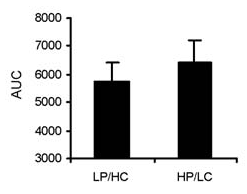
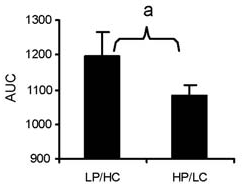

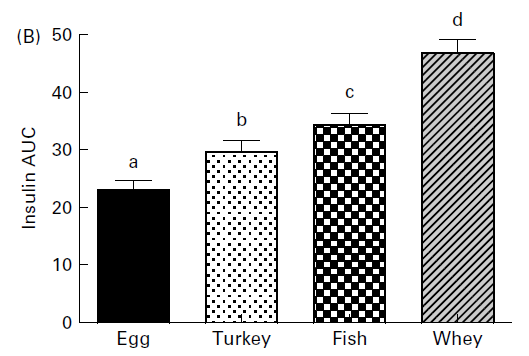
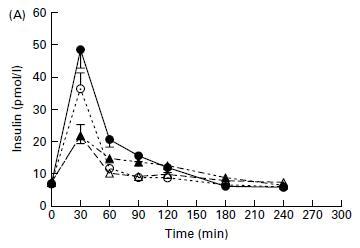
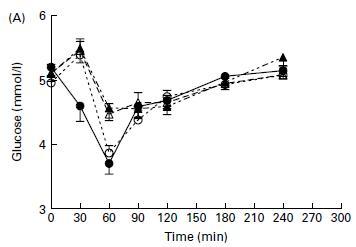
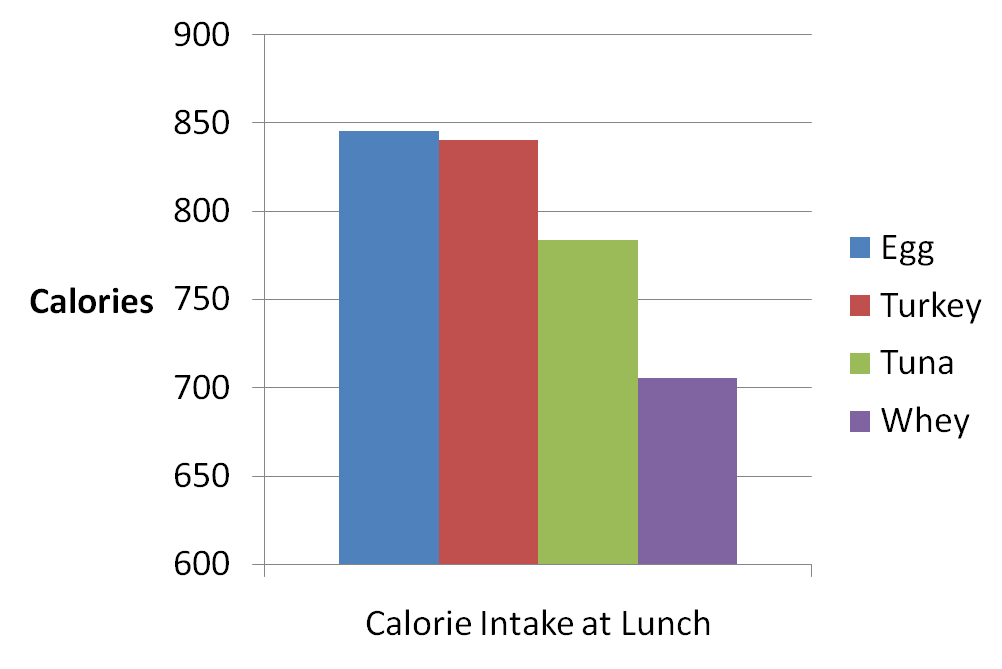
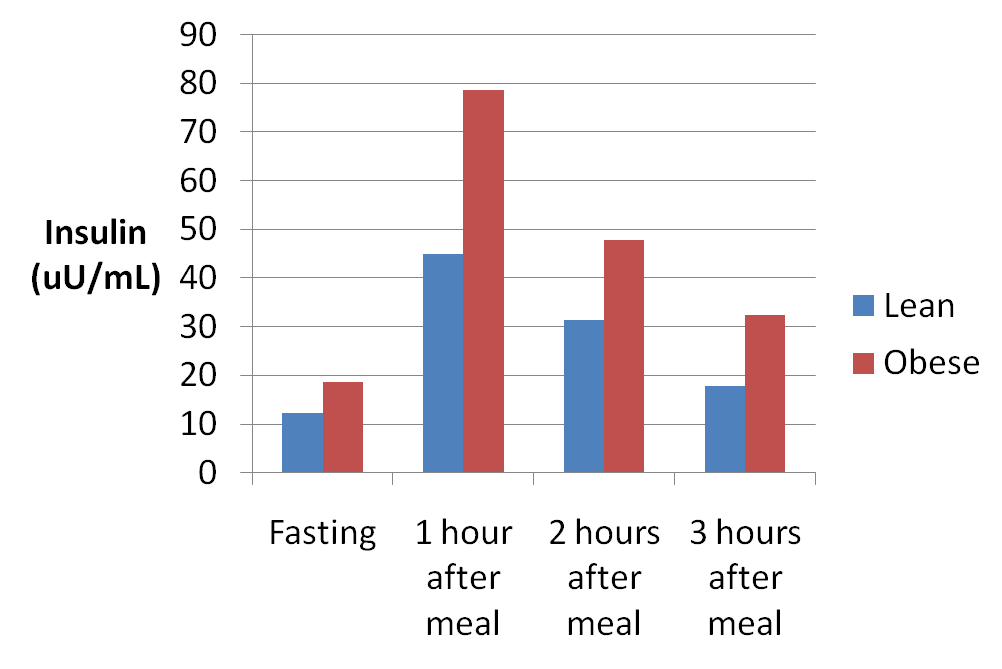
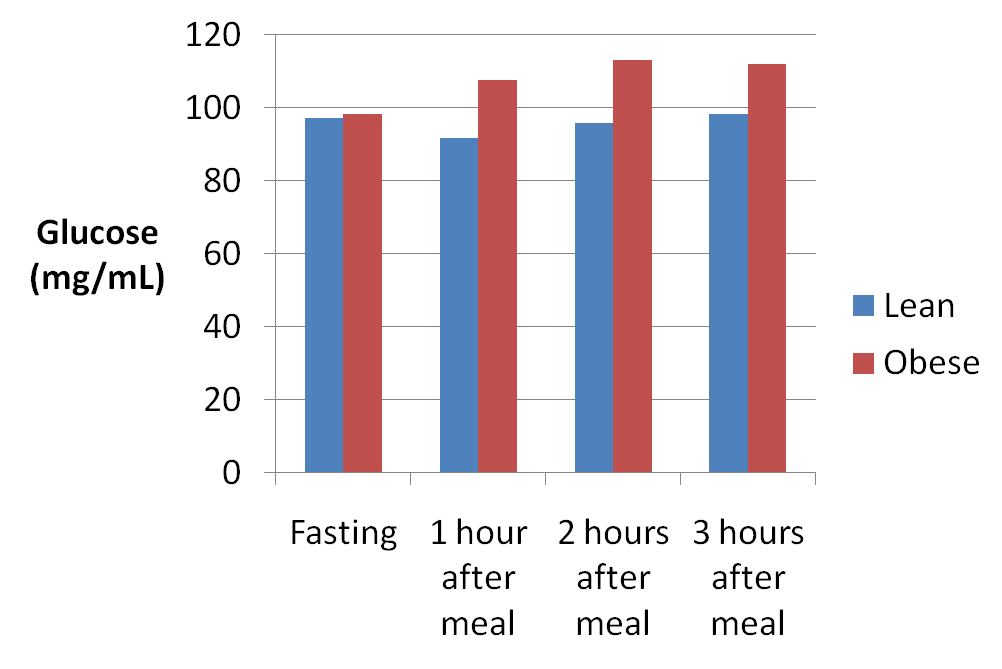
This is FA-SCI-NA-TING……..
Wow amazing read,information….makes you really think about accepted knowledge!!!
Thanks!!!!!! Guy
This is my post on how I lost 70 pounds…
http://guythehealthypaleoguy.wordpress.com/2010/09/13/my-oath-to-you-september-13th-2010/
James, I’ve waited a few weeks for the rest of your response, but it looks like you’ve been busy on other topics. So I’m going to follow-up to your most recent reply: First a caveat: I notice that you rely quite a bit on study abstracts from PubMed, since you link to them in your posts. I assume that you have ready access to the entire studies. However, since most of us don’t have free access and cannot evaluate the full studies and data firsthand, it is hard provide a fair judgment of your interpretations of the data, beyond what… Read more »
James,
I see that I did not correctly use the blockquote editing feature. Since I could not preview or edit my comment syntax, I wasn’t sure how it worked. I see it resulted in incorrect formatting. Can you please sort it out for me?
Thanks!
Todd
James, I’ve waited a few weeks for the rest of your response, but it looks like you’ve been busy on other topics. So I’m going to follow-up to your most recent reply: First a caveat: I notice that you rely quite a bit on abstracts from PubMed, since you link to them in your posts. I assume that you have ready access to the entire studies. However, since most of us don’t have free access and cannot evaluate the full studies and data firsthand, it is hard provide a fair judgment of your interpretations of the data, beyond what is… Read more »
Excellent information, the LC crowd needs to see this one. “The fact is that insulin is not this terrible, fat-producing hormone that must be kept as low as possible. It is an important hormone for appetite and blood sugar regulation. In fact, if you truly wanted to keep insulin as low as possible, then you wouldn’t eat a high protein diet…you would eat a low protein, low carbohydrate, high fat diet. However, I don’t see anybody recommending that.” Actually, I’d say this is the most recommended type of diet I’ve seen in the paleo world: http://homodiet.netfirms.com/ http://www.paleonu.com/panu-weblog/2009/8/27/how-to-lose-weight.html http://freetheanimal.com/2008/12/animal-fat-protein-paleo.html http://www.rawpaleoforum.com/journals/lex%27s-journal/ http://www.marksdailyapple.com/how-much-is-too-much/… Read more »
Another great one James, thank you!
James, First, let me say that I highly respect your willingness and ability to take on the conventional wisdom and present a new view on insulin. You have certainly challenged me to take a closer look at recent research in this area. And you are very patient and respectful in dealing with all my questions, concerns, and challenges. Nevertheless, I’m still not convinced, so I’d like to continue our discussion. 1. I’ll start with a point of agreement: I think we would both acknowledge that insulin resistance is the core problem behind obesisty, not insulin spikes. Insulin spikes, as long… Read more »
I think we would both acknowledge that insulin resistance is the core problem behind obesisty, not insulin spikes. Even there, though, I would disagree with you somewhat. I don’t think there is any single core problem behind obesity; I am of the stance that obesity is caused by positive energy balance, which itself is caused by a huge number of factors operating simultaneously. I am also of the stance that the combination of factors that lead to obesity in one person are not the same combination that led to obesity in another person. Also, there is a subset of obese… Read more »
I’ve predicted a response.
Can we start a pool?
Sam, Sorry to hear you thought my post was confusing. You may be right that I could have been clearer. Let me try again. James states: “MYTH: Insulin Makes You Hungry. FACT: Insulin Suppresses Appetite. It is a well known fact that insulin acutely suppresses appetite. This has been demonstrated in dozens and dozens of experiments.” I will acknowledge that cause-and-effect relationships can be complex. Some causal trains can even be circular or cyclic: For example, obesity causes insulin resistance, which typically leads to further weight gain. But even in complex systems, one can often single out a significant or… Read more »
I hope the long, long links come out OK: (too bad there’s no preview, at least on my version of firefox)
rat study, but since it supports “insulin reduces hunger” … (or in this case, more insulin resulted in lower meal size)
http://www.sciencedirect.com/science?_ob=ArticleURL&_udi=B6T0P-47XGCYV-4M&_user=10&_coverDate=09%2F30%2F1994&_rdoc=1&_fmt=high&_orig=search&_sort=d&_docanchor=&view=c&_searchStrId=1432722257&_rerunOrigin=scholar.google&_acct=C000050221&_version=1&_urlVersion=0&_userid=10&md5=7db3a1f95ab3aec6ae165a619abc2f60
If cephalic insulin increases appetite, suppression of cephalic phase insulin would increase meal size. It doesn’t: using cholinergic blockers to block cephalic phase insulin release had no effect on meal size
http://www.sciencedirect.com/science?_ob=ArticleURL&_udi=B6T0P-485RP2D-2J&_user=10&_coverDate=03%2F31%2F1984&_rdoc=1&_fmt=high&_orig=search&_sort=d&_docanchor=&view=c&_searchStrId=1432722275&_rerunOrigin=scholar.google&_acct=C000050221&_version=1&_urlVersion=0&_userid=10&md5=8e02c4db164b165ba56c29c8fae26b82
The abstract doesn’t specify what gets blocked by the choline blockers – might be several things.
cephalic insulin release is associated with multiple hormones and neurotransmitters. It’s nothing like an insulin injection. I got the above links with a google search like this: “cephalic insulin” insulin blockade hunger Just to see the other side of the issue I did a couple of searches … these google searches produced zero or almost zero hits “preprandial insulin” “increased hunger” “preprandial insulin” “increases hunger” “cephalic insulin” “increases hunger” “cephalic insulin” “increased hunger” This produced a few hits but nothing really on point – most seem to be about artificial sweeteners “cephalic phase insulin” “increased hunger” oh, wow … VERY… Read more »
In his above statement, James is the one taking a rather black-and-white position here. He flat out denies that insulin can make you hungry, calling it a “myth”. According to the statement above, insulin can ONLY suppress appetite. This is a strawman representation of my position. First, nowhere have I stated that insulin can only suppress appetite, and my “myth/fact” statement does not imply a false dichotomy because my entire article is about how insulin operates under physiological conditions. The injection of insulin in a fasted state is not a relevant physiological condition. It has no relevance to how insulin… Read more »
I gave the example that appetizing food aromas can induce the pre-prandial (or “cephalic phase”) secretion of insulin (via the vagus nerve stimulation of the parasympathetic nervous system) thereby causing a drop in blood glucose in a person who is in a fasted state and experiencing no hunger up until the point of smelling the appetizing aromas. Your hypothesis that cephalic phase insulin secretion increases hunger is not supported by the majority of the scientific data. In fact, numerous lines of evidence point against your hypothesis: 1. You are assuming that, because appetizing food aromas can increase appetite, and because… Read more »
This has been established, for example, by studies in which the vagus nerve is severed, cutting off the cephalic phase response, and thereby suppressing both insulin secretion and hunger But when the vagus nerve is severed, many factors involved in the regulation of appetite are affected. You cannot use this data to support the idea that insulin increases hunger. And I think people with higher basal insulin levels and more active insulin responses are more prone to cravings induced by sensory stimulation, But again you are committing the cum hoc, ergo propter hoc fallacy here. People with high basal insulin… Read more »
>> direct infusion of insulin into the brain is not a physiologically realistic model But injecting fasted patients with insulin is, according to you and Gary Taubes >>> The best explanation for the onset of hunger must be the agency of hormones such as insulin and leptin, So who are you arguing with here? That’s been James’ point the entire time – many factors are involved. You somehow managed to write this sentence, and then just below mis-represent all of James’ preceding discussion into the simplistic >> To say that hunger is primarily a response to low blood glucose nobody… Read more »
somehow this didn’t make it into the previous post …
injecting insulin is not physiological because it includes none of the accompanying normal responses that normal insulin release would have – neurological, hormonal, psychological
Injecting directly into the brain is highly questionable (made less questionable when similar results obtain with different methods)
but that doesn’t make venous injection less questionable.